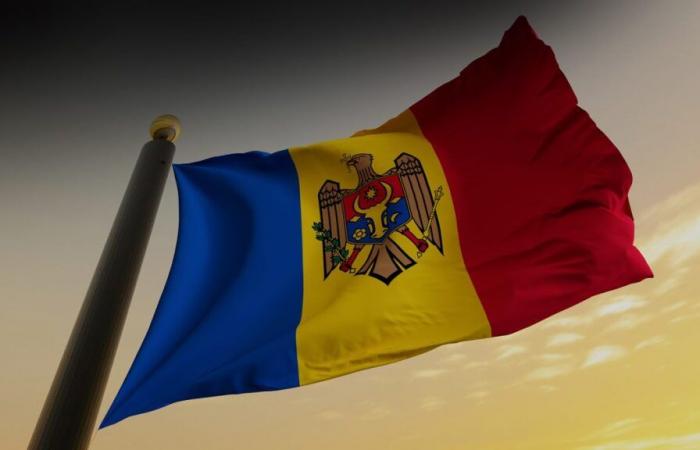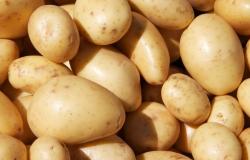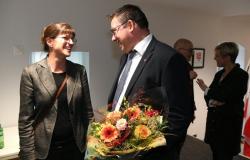Michel Labrecque is the author of Moldova in the eye of the Russian stormpublished by Éditions Art Global in 2024.
If the election of Donald Trump worries people in Ukraine due to his proximity to Vladimir Putin, other countries in the region must defend themselves against Russian influence, they which were also in the middle of the electoral process.
In Georgia, on October 26, pro-European forces lost against the ruling pro-Russian party. Then, on November 3 in Moldova, a landlocked country between Romania and Ukraine, the president, who symbolizes openness to Europe, was unequivocally re-elected, defying disinformation and vote buying organized by the forces. pro-Russian.
The outgoing president, Maia Sandu, won much more convincingly than at the end of the first round, on October 20, which took place at the same time as a referendum on Moldova’s membership in the European Union: narrowly won, 50.46% in favor of Yes. With 38% of the votes, she herself seemed threatened with losing in the second round.
This former economist at the World Bank, aged 52, faced Alexandr Stoianoglo, a former prosecutor general supported by the pro-Russian Socialist Party. Many intellectuals and entrepreneurs feared a result as close as that of the referendum. Ultimately, Maia Sandu obtained 55.33% of the votes.
Many citizens of this small country of 2.6 million people breathed a sigh of relief. “I was terrified of Maia losing,” confides Corina Caireac, a resident of Chişinău, the Moldovan metropolis and capital, located about a hundred kilometers from Odessa, a Ukrainian port city on the Black Sea regularly the target of Russian bombings. “At the start of the night, when his lead was confirmed, I saw on social networks lots of my friends opening bottles of wine and sparkling wine out of relief,” says this worker in the cultural and media world.
The inhabitants of this former Soviet republic from 1940 to 1991, formerly part of Romania, mainly speak Romanian, but the Russian-speaking imprint left by the Soviet presence remains very strong almost everywhere in the country. More than a quarter of the population has Russian, Ukrainian or Bulgarian origins.
“People were shaken by the results of the first round and by the extent of Russian propaganda,” Mihai Fusu, a well-known theater teacher and documentary playwright in Moldova, told me. “Young people as well as the inhabitants of Chișinău voted more,” says the man who has served as my guide and interpreter since 1991. In total, 200,000 more voters voted in the second round.
The large Moldovan diaspora also had their say. Since its independence in August 1991, the country has lost a third of its inhabitants, economic difficulties having forced some to go and work abroad, particularly in Quebec. This diaspora remains very politically involved. She voted more in the second round than in the first – 35% more voters – which tipped the scales in favor of Maia Sandu.
In Quebec, of the 4,094 Moldovan nationals who voted, 88% voted for the outgoing president.
While in Georgia, located across the Black Sea in the Caucasus, the pro-European opposition failed to defeat the more Russia-friendly ruling party, Moldova chose to keep its voice European with this choice of November 3.
However, nothing is won: legislative elections will take place in 2025 and could change this trajectory. Maia Sandu’s party, the Action and Solidarity Party (PAS), risks losing its majority in Parliament to parties supported by Russia.
“Putin’s Russia is like a cancer trying to contaminate all the former Soviet territory; she will start again next year,” says Corina Caireac, who grew up in Soviet Moldova and has painful memories of it. Older citizens, for their part, sometimes retain a nostalgia for it. They evoke less complicated times, when everything cost less, even if there were few goods available.
During the referendum and the first round of the presidential election, a sophisticated vote-buying network with funds from Russia was revealed. The operation was led by Moldovan oligarch Ilan Shor, on the run to Russia after being convicted of a billion-dollar fraud against Moldovan banks.
On the day of the second round vote, bomb threats in several diaspora polling stations were denounced, notably by Annalena Baerbock, German Minister of Foreign Affairs. “It seems that nothing can stop Vladimir Putin, even in a democratic country. »
All European leaders are cheering the election of Maia Sandu, from Frenchman Emmanuel Macron to Pole Donald Tusk. For his part, US President Joe Biden said: “Russia tried to undermine Moldovan democracy, but it failed. »
Still, if Russia wins its war against Ukraine, the Moldovans fear being Putin’s next target. A consortium of European journalists has revealed a secret Kremlin dossier according to which Moscow plans to regain political control of Moldova by 2030.
The election of Donald Trump two days after Maia Sandu’s victory is not reassuring, the future president questioning American aid to Ukraine and having promised to resolve this war “in 24 hours”. Which could make little Moldova more vulnerable to Vladimir Putin and his allies.






